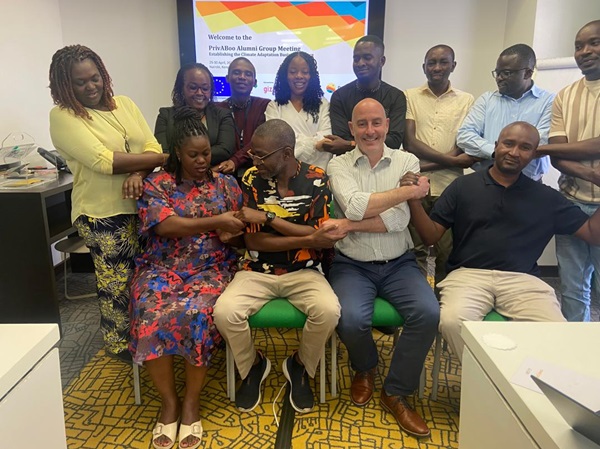
The newly rebranded Climate Adaptation Business Alliance (CABA) has officially launched in Nairobi, Kenya, marking a significant evolution from an Africa-focused platform to a global movement. Now inclusive of founding members from Fiji, Rwanda, and Pakistan, CABA aims to drive private sector-led climate resilience through innovation, investment and policy reform.
Hosted under the PrivABoo initiative of the NDC Assist II project by the Deutsche Gesellschaft für Internationale Zusammenarbeit (GIZ), the launch brought together a diverse coalition of climate innovators, investors, policymakers and entrepreneurs. The gathering reaffirmed a shared commitment to positioning climate adaptation as a pillar of sustainable economic growth.
Appointed as CABA’s first executive director, climate resilience expert Suleiman Dikwa known for his work in Nigeria and the Lake Chad Basin, set the tone with a powerful keynote titled “From Local Resilience to Global Transformation.”
“This is not the era of incremental change—we are leading the Grand Transition,” Dikwa said. “Africa is not waiting to be rescued. We are actively shaping the economy the Earth needs—resilient, regenerative and just.”
He outlined three core pillars that will anchor CABA’s mission:
Certification: Establishing a global standard for certifying credible climate adaptation enterprises to guard against greenwashing and build trust.
Policy Reform: Advocating for national and international frameworks that recognize natural capital, support regenerative practices, and mainstream resilience into development planning.
Investment Mobilisation: Launching a Climate Adaptation Deal Flow Platform to connect innovative SMEs and community-based projects with impact-focused investors.
CABA draws from the legacy of Green Sahara Farms, which pioneered successful climate adaptation models in Nigeria and the Lake Chad region, including drought-resistant agriculture and flood-resilient infrastructure. These solutions showcase how adaptation can deliver both environmental resilience and socio-economic equity.
The alliance also announced Denis Mijibi as executive secretary, responsible for coordinating international engagement, resource mobilisation and strategic partnerships.
To accelerate impact, CABA will establish sectoral working groups, implement a 100-day action plan, and roll out a roadmap to onboard new countries and partners through 2026.
The alliance’s global expansion signals a growing consensus: climate adaptation is not only a survival strategy—it is a significant economic opportunity that demands bold, collective action.

